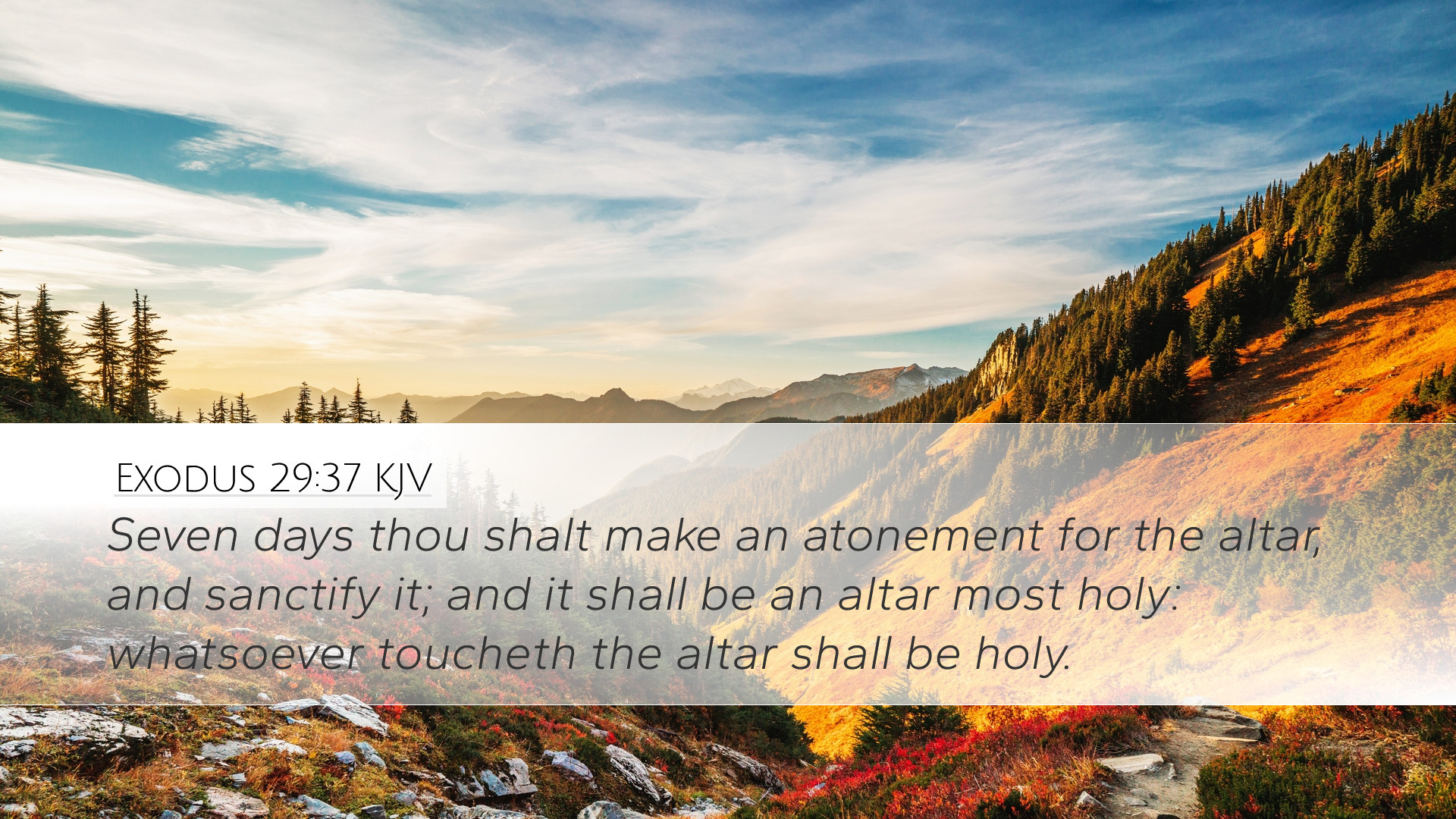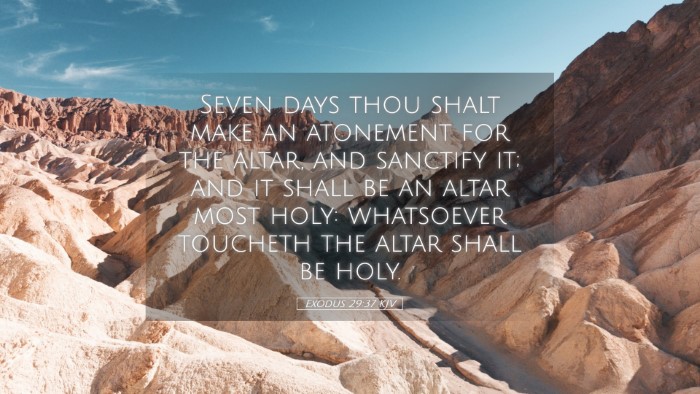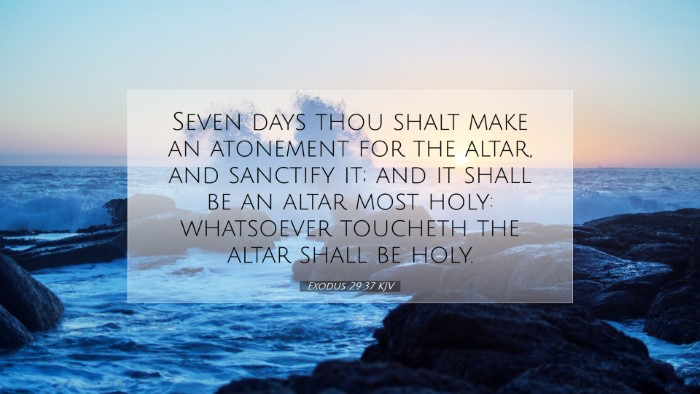Exodus 29:37 Commentary
Verse: "Seven days thou shalt make an atonement for the altar, and sanctify it; and it shall be an altar most holy: whatsoever toucheth the altar shall be holy." (Exodus 29:37)
Introduction
This verse concludes the instructions regarding the consecration of the altar, emphasizing the importance of sanctification and holiness in the worship practices of ancient Israel. The commentaries from notable theologians provide insights into the spiritual significance of this passage and its implications for both historical and contemporary understanding of the sacrificial system.
Historical Context
The instructions in this chapter are part of God's covenant with Israel, illustrating His desire for a dedicated and sanctified space for worship. The altar represents a critical element in the sacrificial system, acting as the meeting point between God and His people. The repetitive nature of the consecration over seven days underscores the importance of thorough preparation and the seriousness of approaching God.
Matthew Henry's Insights
Matthew Henry emphasizes that the altar symbolizes both the presence of God and the means of atonement for sin. In his commentary, he notes, "The seven days of atonement signify a complete and thorough cleansing process—just as the number seven represents completion in Scripture." He points out that the sanctification process is not merely ceremonial but speaks to the transformative nature of encountering God.
Albert Barnes' Perspective
Albert Barnes comments on the phrase "whatsoever toucheth the altar shall be holy." He observes that this highlights the altar's unique status as a holy object that brings sanctity to what it comes into contact with. Barnes states, "This principle of contagious holiness suggests that in approaching God, individuals and their offerings must be purified and set apart." He elaborates on the concept of holiness in the Old Testament, explaining that it is both positional and progressive.
Adam Clarke's Interpretation
Adam Clarke provides an in-depth analysis of the ritualistic aspects of the altar's consecration. He notes, "The process of making the altar most holy indicates that access to God requires an acknowledgment of His purity and the need for atonement." Clarke articulates how the rituals serve to illustrate God's holiness and the gravity of human sinfulness, creating a framework for understanding divine forgiveness.
Theological Implications
The primary theological theme in this verse is the sanctification and holiness associated with the meeting of God and His people. The continuous process of purification through atonement reflects God’s overarching desire to dwell among His people while ensuring that they remain in a right relationship with Him.
- The Holiness of God: The text stresses that God’s holiness is paramount, and any approach to Him must come through consecration.
- Symbol of Atonement: The altar serves as a symbol of atonement, which points to the greater sacrifice of Christ, bridging the Old and New Testament teachings.
- Inclusion of Community: The sanctification process emphasizes that the whole community is affected by the holiness of the altar, illustrating collective responsibility in worship practices.
Application for Modern Faith Communities
For contemporary followers of Christ, the principles drawn from this verse continue to hold significant relevance:
- Personal Holiness: Believers are reminded of the need for personal sanctification as they approach God in prayer and worship.
- Community Worship: Just as the altar affected the holiness of the entire community, so too should our collective worship reflect purity and reverence.
- Understanding Christ's Sacrifice: The altar's significance foreshadows Christ’s ultimate sacrifice, urging believers to live in light of that redemptive act.
Conclusion
Exodus 29:37 encapsulates crucial elements of holiness, atonement, and God's intimate desire to dwell with His people. Reflecting on the commentary insights from historical theologians provides a deeper understanding of these principles and how they are applicable today. The holiness that radiates from the altar is a call for all to engage in worship that is thoughtful, reverent, and reflective of God’s great mercy and grace.


